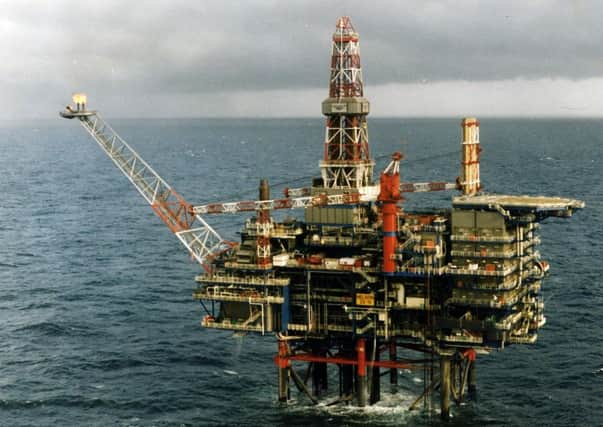Volcanoes in North Sea could hold huge untapped oil reserves


Geologists at Aberdeen University have revealed they have discovered “phantom” volcanoes covering a “huge swathe” of unexplored North Sea basin.
For decades the 3,000sq mile area was believed to have the remains of three volcanoes that erupted 165 million years ago.
Advertisement
Hide AdAdvertisement
Hide AdThe Rattray Volcanic Province has for years been dismissed by North Sea oil and gas firms as empty magma chambers.
But academics now claim it might yield an eruption of oil and gas reserves.
Nick Schofield, from the university’s school of geosciences, said “several” large oil and gas operators had expressed interest in the study.
And he said it was time North Sea firms looked at the basin with “fresh eyes”.
The new findings raise the possibility of future discoveries in the area, which has been untouched during 50 years of North Sea exploration activity.
Mr Schofield said: “Essentially this gives us back a huge amount of gross rock volume that we never knew existed, in one of the world’s most prolific regions for oil and gas production.
“Below and on top of the Rattray could hold oil and gas reserves, though it’s way too early to tell how much.
“But often the best place to find oil is where you’ve discovered it before.”
Advertisement
Hide AdAdvertisement
Hide AdThe discovery was made during Aberdeen PhD student Ailsa Quirie’s postgraduate research for the Carnegie Trust scholarship.
Mr Schofield and Ms Quirie were working on the data from the far North Sea, close to the Rosebank field, west of Shetland.
He said the team combined 3D seismic data with methods used to look at other volcanoes elsewhere in the UK Continental Shelf.
Mr Schofield said: “What we found has completely overturned decades of accepted knowledge.
“We think most of the rock is untouched, it’s very exciting. People need to look at the North Sea with fresh eyes after this discovery.
“There is a huge area under there that hasn’t been looked at in detail for a long time, because of the previously incorrect geological model.”
